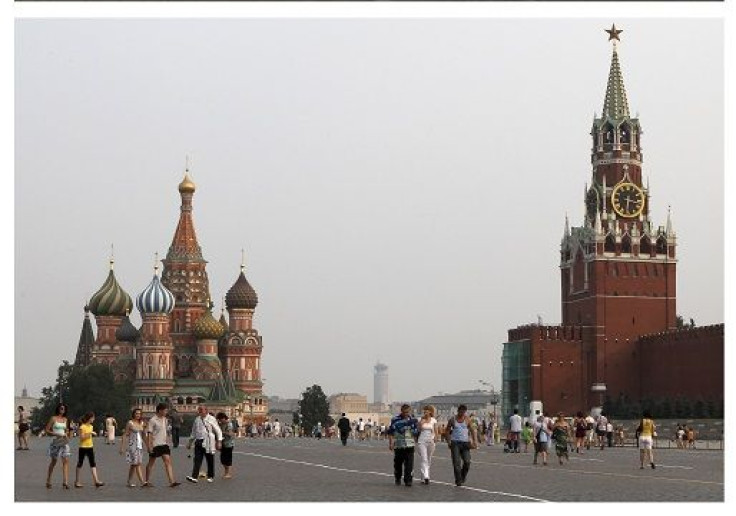Russia Goes Tit-For-Tat After U.S. Releases Magnitsky List, But Trade Trumps All

The relationship between the United States and Russia was more prickly than usual this week.
On Saturday, Russian officials released a list of 18 American citizens who are accused of human rights abuses and will henceforth be banned from entering Russia.
The list was made public a day after the United States released a list of 18 Moscow officials accused of human rights abuses in the case of Sergei Magnitsky, a Russian citizen who died in prison four years ago.
The tit-for-tat moves are just another chapter in an ongoing narrative. Washington generally sides with the many Russian activists who accuse President Vladimir Putin's administration of condoning human rights abuses and suppressing dissent. In turn, the Kremlin points its finger at Washington for violations at its Guantanamo Bay detention center.
The spat is raising concerns about the relationship between the former Cold War rivals. But this is nothing new; neither Russia nor the United States has ever been shy about criticizing the other. Further, Russia and the United States are bound by trade, a tie much stronger than diplomacy.
Death Behind Bars
Sergei Magnitsky was a Russian lawyer whose work led him to uncover a pattern of fraud and corruption perpetrated by Russian officials. When the Kremlin caught wind of his activities, Magnitsky was thrown into jail without a trial in 2008.
The lawyer suffered behind bars; his family says he was denied medical treatment and beaten. He died on Nov. 16, 2009 -- seven days before he might have been freed in accordance with a law forbidding prolonged detentions without trial.
To this day, the officials responsible for Magnitsky’s treatment have never been charged.
After his death, U.S. officials and activists seized on Magnitsky’s case. In December, a bill called the Magnistsky Act sailed through Congress and was signed by President Barack Obama. It mandated that 18 officials who were involved in Magnitsky’s detention and abuse would be barred from travel to the United States, and that their assets would be frozen.
The move certainly chilled relations between Moscow and Washington. The Kremlin responded by banning U.S. adoptions of Russian children.
Then, on Friday, the list of names included in the Magnitsky Act was revealed to the public. It includes Artyom Kuznetsov, a Moscow Interior Ministry tax investigator, and Yelena Stadhina, a judge who helped prolong Magnitsky's detention, according to Reuters.
Moscow’s list was similar to the American list in that it referenced no top-level politicians. It’s highest ranking target is David Spears Addington, according to the AFP, who was former Vice President Dick Cheney’s chief of staff.
Rubles Versus Rights
While the diplomatic relationship between Russia and the United States has chilled, the two countries’ economic partnership is stronger than ever.
Two-way trade in goods is only growing: It reached nearly $40 billion last year and is on track to hit a similar amount by the end of 2013. That’s nearly a four-fold increase from the $11 billion in goods exchanged just a decade ago.
Now, trade is expected to ramp up even more. Russia joined the World Trade Organization, or WTO, last August. As a result, it gained easier access to foreign markets and lowered its import tariffs, essentially knocking down barriers to trade with all WTO members, including the United States.
Analysts predict that U.S. exports to Russia will at least double over the next five years. The trade growth will especially benefit American value-added industries, including manufacturers of farm machinery, commercial aircraft and oil-and-gas equipment.
Russia only accounts for about 1 percent of U.S. trade turnover each year. But with both countries struggling with high unemployment rates and sputtering growth, neither can afford to endanger that exchange.
The Magnitsky Act will certainly miff a few Kremlin officials, just as Russia’s new list won’t be received well in Washington. But both lists do absolutely nothing to make trade partnerships contingent upon human rights improvements. Strong words notwithstanding, the relationship between Russia and the United States is warmer than it looks.
© Copyright IBTimes 2024. All rights reserved.












